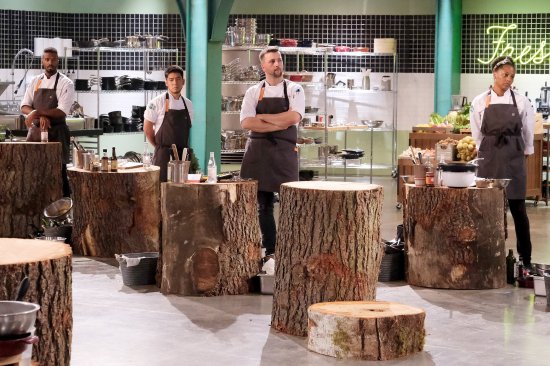
Top Chef has long been the gold standard of competition shows, raking in 42 Emmy nominations and two wins over 19 seasons. Whereas most series in this genre care more about the drama among the contestants than what they produce, the quality of the food has always been the priority for Top Chef’s judges—restaurateur Tom Colicchio, host Padma Lakshmi, cookbook author Gail Simmons, and a rotating group that has included industry titans like José Andres, Eric Ripert, and the late Anthony Bourdain. The panel has earned viewers’ trust and investment with its nuanced, enthusiastic, and unbiased assessments. And over its nearly two decades on air, Top Chef has evolved for the better. Early on in the show, a dish from a chef without a background in classical French cuisine might have been dismissed as “just a taco” or “just a dumpling,” but the judges have broadened their palettes as restaurants across the U.S. have proven that any cuisine can be elevated to high art.
[time-brightcove not-tgx=”true”]
While hot-headed straight, white dudes who made openly sexist remarks and vied to undermine their competitors dominated some early seasons, reflecting trends in a notoriously toxic industry, in the last several years, the show has begun to cast a more diverse array of chefs who—crucially—don’t buy into the macho ethos of many of the world’s best kitchens. In 2021, these improvements manifested in a cast that radiated positivity and rallied support for an industry decimated by COVID-19. Every elimination of a worthy competitor was met not with victory laps, but instead with hugs, tears, and promises to carry lessons learned on the show back to their respective restaurants. Even a scandal surrounding the eventual winner couldn’t quite dampen the warmhearted season. Runners-up Shota Nakajima and Dawn Burrell, in particular, modeled how the recovering restaurant industry can build a kinder, gentler, more welcoming community that serves creative, delicious food. —Eliana Dockterman